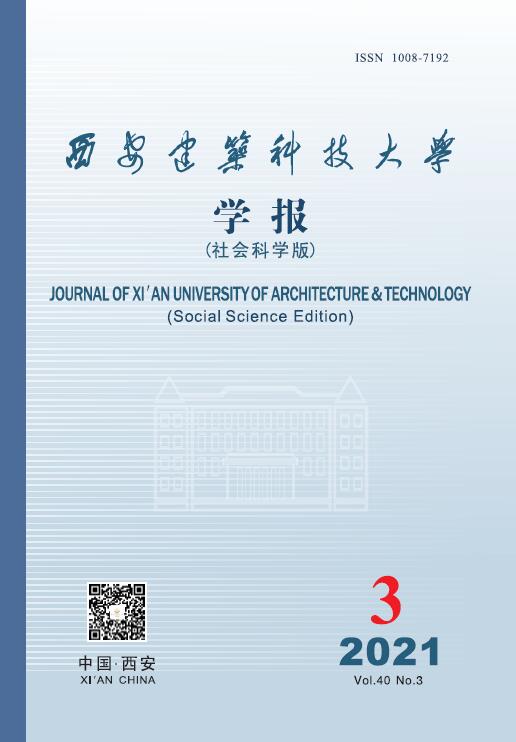作者简介:刘 志(1965-),女,长安大学人文学院法学教授,硕士生导师,研究方向为环境与资源保护法学; 毕琳杰(1994-),女,长安大学人文学院法学专业硕士研究生,研究方向为环境与资源保护法学。E-mail:msbiljchd@163.com
(School of Humanities, Chang'an University, Xi'an 710054,China)
ecological damage compensation; consultation system; the right holder of compensation; role position; two-stage theory
DOI: 10.15986/j.1008-7192.2021.03.009
备注
作者简介:刘 志(1965-),女,长安大学人文学院法学教授,硕士生导师,研究方向为环境与资源保护法学; 毕琳杰(1994-),女,长安大学人文学院法学专业硕士研究生,研究方向为环境与资源保护法学。E-mail:msbiljchd@163.com
引言
1 问题的提出
2020年3月,中共中央办公厅、国务院办公厅印发了《关于构建现代环境治理体系的指导意见》,强调以习近平生态文明思想为指导,加强全面贯彻实施党的十九大和十九届二中、三中、四中全会精神,完善构建我国生态环境相关制度保障。2019年6月5日世界环境日,最高人民法院颁布了《关于审理生态环境损害赔偿案件的若干规定(试行)》,明确将磋商程序作为生态环境损害赔偿诉讼的前置程序,以充分发挥生态环境损害赔偿磋商的制度优势。多项法规政策的出台彰显了国家对于生态文明建设尤其是生态损害赔偿及磋商等相关制度建构方面愈发重视。
2017年12月,中共中央国务院在总结吉林、山东等7个省市开展生态环境损害赔偿制度改革试点工作基础上,出台了《生态环境损害赔偿制度改革方案》,规定自2018年1月1日起全国试行生态环境损害赔偿制度,其重要内容之一即在全国范围内构建生态环境损害赔偿磋商制度,细化了赔偿磋商的部分具体适用问题,将生态损害赔偿权利人(以下简称“赔偿权利人”)相关规定修改为省级政府、市级政府及其指定的相关部门与机构,赔偿主体范围扩大化在一定程度上缓解了试点实践中出现的矛盾,完善了《生态环境损害赔偿制度改革试点方案》的部分规定性问题,对生态损害赔偿工作起到推进作用。但此规定对赔偿权利人主体范围的修改仍存在不足,究其根源实属关键争议点未得到解决,即本质层面之磋商制度的法律性质以及赔偿权利人的法律地位等理论基础存疑,难以支撑上层制度构建。
作为磋商主体的赔偿权利人在磋商制度建设中具有重要作用,然而与其适用的磋商与诉讼制度之间却存在法律性质不清、法律地位不明确等问题,导致赔偿权利人在赔偿磋商过程中身份尴尬且权利义务适用模糊、磋商目标难以得到有效实现。因此,为解决赔偿权利人既作为行政管理者,又作为民事权利人,其复杂的身份混同困境,与其在磋商过程不同阶段产生的不同属性之法律关系混淆,以及磋商与诉讼衔接的主体问题,亟需厘清赔偿磋商的法律性质,同时反思学界存在的主要争议,提出最为适宜的解释路径,对赔偿权利人在磋商各阶段的法律地位予以明确。
2 磋商制度中赔偿权利人的解释论分析
赔偿权利人的解释路径决定了赔偿权利人实施法律行为的属性以及其形成何种属性的法律关系,是明确磋商过程中赔偿权利人法律地位的理论基础与前提条件,且最终影响环境损害赔偿、生态修复、维护环境利益等目标的实现。针对赔偿权利人的解释论分析,学界对此主要存在以下三种争议。
2.1 赔偿权利人私法解释及反思理论界认为,磋商行为本质属于民事行为,磋商制度是依循私权利行使的制度设计,即“民事行为论”[1]480-482,针对磋商文本含义进行重点解读,偏重其自由沟通、平等协商的民事关系属性,而生态环境损害赔偿磋商协议也就是赔偿权利人与赔偿义务人根据生态损害事实、基于平等主体之间自由意思表示自愿签订的民事合同,旨在平衡环境相关人各方利益[2]。
依此私法解释路径,行政机关作为赔偿权利人不再是强硬的行政管理者、公权力身份,贯以命令方式解决生态损害赔偿,失去行政主体地位,而是如私人民事主体行使自由处分权一般,转变为生态环境(公共利益)的代表者,或者说是自然资源所有者代表与赔偿义务人进行磋商即平等、自由的协商谈判方式,虽然有行政机关参与,但不是立足行政法律关系而是存在于平等的民事法律关系之中,合同双方作为平等民事主体身份行使民事权利,参与生态环境损害调查、鉴定评估、修复方案编制等工作,履行民事义务,达到对受到损害的生态环境进行及时修复与赔偿、保障公民生态环境权益的制度目的,有效弥补传统强制性行政环境管理手段与公益诉讼的缺陷,兼顾生态环境保护效率与公正的价值。
但是,该理论依据核心过分体现磋商过程中平等协商之私法手段的重要性,易陷入私法领域的学理误区,从而忽视作为问题本身的维护生态环境公共利益之公法目的与一定程度上政府的行政主导价值。若仅仅依据私法路径解释磋商制度性质存在片面性,并且将自由沟通、平等协商方式达成的磋商协议定性为民事合同也并不妥当,毕竟“公法的规范不得由个人之间的协议而变更,而私法规范则是任意性的”[3]99,因此磋商性质不能简单地定义为本质上的民事行为。行政机关作为赔偿权利人本身地位具有的复杂性以及生态环境(公共利益)的特殊性决定了其无法与一般民事权利人站在同一求偿起点进行一般民事权利的行使,这都意味着赔偿权利人的法律地位无法通过纯粹单一的私法解释路径得到完整准确的界定[4]。
同时,赔偿权利人的私法解释路径受到《试点方案》《改革方案》等具有私法特色官方文件表述的误导,将作为赔偿权利人的行政机关与传统侵权理论的侵权损害赔偿权利人等同视之。但生态损害具有鲜明公共性特质,传统侵权法是以保护受害方私人利益为中心的,无法顾及对于生态本身的损害进行修复与救济之问题,所以生态损害与私人权益损害是有本质差别的,而且行政机关若以民事主体身份基于自由意志表示与赔偿义务人在磋商过程中进行任意性处分或妥协,将会受到正当性和民主性的拷问,甚至由此失去控权基础,所以作为赔偿权利人的行政机关并非民法意义上的民事权利人。
2.2 赔偿权利人公法解释及反思理论界认为赔偿磋商具有明显公法特征,磋商制度性质界定应当属于“行政行为论”。行政机关作为赔偿权利人在整个磋商三阶段均发挥着强烈的行政主导性。磋商前期即生态损害调查和鉴定评估阶段,由行政调查权主导; 磋商中期即制订协议阶段,以平等协商和限制行政机关自由裁量权方式合意达成的磋商协议与行政法上的行政契约在主体、客体、目的及效果四大构成要件等方面具有一定程度的耦合性,磋商协议主体为行政机关,协议讨论的内容主要涉及生态环境(公共物品)的治理与修复,建立的是行政法律关系且以政府履行行政管理职能和保护公共环境利益为目标,充分体现公权背景、彰显行政属性,即磋商协议属于行政机关作为赔偿权利人以主导者身份签订的行政契约; 磋商后期即协议的监督履行阶段,由行政确认权主导。据此,磋商三阶段蕴含的公权力背景尤其是根据磋商协议属于行政契约这一观点判定磋商性质为公权行政属性,该制度之赔偿权利人为绝对的主导性行政管理身份。
但是,通过该途径解释磋商制度其实本质上与传统环境行政管制方式基本无异,政府“命令式”行政权的行使能够促进生态环境损害救济效率的提高,但过分强调公权力的价值和政府的主导作用,只是穿上新型环境民主“外衣”,丝毫未考量之所以提出磋商这个概念的重要意义即在于其平等协商之理念,只注重赔偿权利人在磋商协议缔结中的行政强制性权力和主导性地位,而忽略了赔偿义务人在磋商赔偿协议制定中应当享有的权利,例如其对协议内容的提议与接受权,在协商过程中基于自由意思表示可行使的选择配合权等请求权、抗辩权,以及赔偿义务主体作为合同缔结一方的独立、自愿与平等之身份,导致无法有效平衡控制生态环境损害人及环境利益相关人等多个主体之间纵横交错的利益关系[5]。
而且,该学说认为,将磋商协议等同于行政契约能够进一步巩固行政机关的控权基础,更迅速地完成生态修复之目标,完全契合生态损害赔偿的重要意义,便将此论点作为明确磋商制度公法性质的依据核心,这种观点存在以偏概全的误区。首先,将磋商协议认定为行政契约本身就有待商榷。根据我国《人民调解法》《最高人民法院关于人民调解协议司法确认程序的若干规定》及《仲裁法》等相关规定,法院或者仲裁机构仅对于民事案件进行调解或仲裁,立足于民事法律关系处理民事纠纷,而行政契约具有行政属性不在法院或者仲裁机构的受理范围之内。因此,磋商协议的性质应当寻求更为适宜的解释路径,若将其定性为行政契约则无法得到有效救济,减少司法求偿途径,严重弱化磋商协议在出现违约情况时的救济。将磋商协议认定为行政契约这一观点存在不妥,更不应当以此作为核心依据判定磋商公法属性以及决定赔偿权利人拥有绝对主导性的行政管理主体。其次,所谓的公私结合实际上回避了公私讨论,默许了政府作为赔偿权利人的行政优越性。在现实司法实践中,本身处于弱势地位的生态环境损害人即赔偿义务人非常容易受到传统思维模式中命令-控制式行政主体身份的影响,对行政机关的强制性行政权力产生顾忌心理,导致磋商过程中无法有效表达真实合理的诉求,意思表示不自由,在磋商协议缔结及履行阶段选择不再配合协商甚至以消极情绪对待后期生态修复。这样的行为后果与最初设定生态损害赔偿磋商制度的理念完全相悖,磋商的意义与价值将不复存在,错综复杂的环境利益关系也无法得到有效平衡,成为空有民主协商外壳、实为行政强制管理甚至强制处罚的表面磋商,不利于实现生态有效修复之目的以及环境可持续发展。
2.3 赔偿权利人双阶构造理论分析在行政民主化改革的过程中,传统“管制行政”已不再适应当今时代发展要求,日趋导向“混合行政”体制变迁,行政主体为提高行政相对人的可接受性、利于更有效地实现行政管理之目标,遂运用私法手段作为行政工具行使公权力,使得私权逐步渗透公法领域,公私交错之产物频频出现。与此同时,在完善环境制度的现实需要和生态文明建设的时代背景等多方面共同影响下,生态损害赔偿磋商制度应运而生,其运行逻辑正好契合“混合行政”体制变迁结果,具有环境保护行政管理职能的行政机关运用磋商方式与行政相对人进行自由、合法、平等协商达成双方意思表示一致的结果,而赔偿权利人借用的磋商此手段属于私法领域,体现公权力行使与私法自治兼具之象,为更好地实现生态修复之目标。由此可见,磋商制度本身即为“公私融合”之创新产物,“非公即私”式传统单一的解释路径已经不合时宜,使其难以在“民事行为”或“行政行为”领域理论的基础上进行独立制度建构。
德国行政法上的双阶理论[6]开启了对法律制度的新型剖析,对传统根深蒂固的公私分立思想造成冲击。将一特定行为设定为不同阶段,不同阶段具有不同属性的法律关系,适用不同部门法进行调整,建立兼容私法元素与公法元素的解释框架与制度模式。符合我国生态环境损害赔偿磋商制度目前运行现状及发展,其思路值得我们学习与借鉴。欧洲侵权法专家冯·巴尔教授曾说过, 生态环境损害就其性质而言既不是一个纯粹公法的问题, 也不是一个纯粹的私法问题, 其处于公法和私法的边界之上,针对生态环境损害的救济, 应赋予国家一个公法性质上、私法操作上的请求权[7]529。运用双阶构造理论对公私兼具的生态环境损害赔偿磋商制度及赔偿权利人进行解释分析更为适宜。
赔偿权利人在磋商制度设计运行中承担着多元化的身份,与传统理论中单一的民事主体或行政管理主体存在明显不同。赔偿权利人在磋商过程中有时表现为行使公权力的行政主体,产生行政法律关系,有时又表现为贯彻私法内涵的民事主体身份,产生民事法律关系。由此可见,同一个制度框架下行政机关是有可能会由于担任的身份与实施的行为之不同,在客观上产生多重不同属性之法律关系共存的现象,即同一生活事实中可能存在不同属性的多重法律关系,同一法律关系也可能存在多重不同属性行为或者多重权利义务关系。这也是赔偿权利人法律性质的复杂性所在,即需要明确政府作为赔偿权利人在具体生态损害赔偿磋商实践中发挥主导力量行使环境行政权力的合法性,同时又要兼顾政府作为民事权利主体行使损害赔偿请求权的正当性。赔偿权利人双阶构造的解释路径,立足于现代民主性环境治理“混合行政”方式,平衡赔偿权利人公私主体的法律身份与权义结构,能够相对合理地解释磋商制度中赔偿权利人的法律机理。
3 对赔偿权利人特殊法律地位的思考与建议
行政机关作为赔偿权利人其本身与行政权力保持着一定的亲和力,而带有私法性质的磋商行为又为赔偿权利人蒙上了民事权利的面纱。需要针对磋商制度运行中形成多重法律关系的现状,进行阶段性、系统性的划分; 从磋商制度设计整体角度,对其蕴含的不同属性之复数法律关系进行全方位剖析,明确赔偿权利人的阶段性角色定位。在磋商前期即生态损害调查和鉴定评估阶段,主要由政府作为赔偿权利人的行政调查权主导,可定性为公权行政行为,赔偿权利具有行政属性; 磋商过程中协议形成及履约、诉讼阶段适宜引入民事性质的法律程序,重在协商,强调双方的互动性,通过私法手段实现公法目标,赔偿权利人与赔偿义务人属于平等的民事主体,适用私法规范来约束其行为。随着赔偿权利人在磋商过程中角色的转换,呈现多重法律关系交错的状态,形成兼顾“行政机关-行政相对人”之行政法律关系与 “赔偿权利人-赔偿义务人”之民事法律关系的双阶构造[8]。
运用双阶构造解释论分析,能够更清晰准确的在界定磋商制度不同阶段属性的基础上定位赔偿权利人的双重身份,这里所说其双重身份并非同一阶段既作为行政管理者又作为民事权利人身份的混同,而是在磋商不同阶段不同属性下赋予赔偿权利人特殊的双重法律地位,阶段性定位能够为制度设计与框架构建的完善予以明确的方向指引。
3.1 明确赔偿权利人在磋商启动阶段的行政属性法律规定将磋商设定为前置程序,即肯定了其对于完善生态损害赔偿制度的意义,磋商启动作为整个损害赔偿制度运行的开端至关重要,学界对其属性论述无非公私两种观点。首先,若行政机关作为民事权利人行使自主处分权,赔偿权利人能够积极主张权利,自主启动磋商程序对赔偿义务人进行损害追责。但是,生态环境作为公共利益,其损害调查、鉴定评估等庞大复杂的证据搜集工作对于一般民事主体来说困难重重,难以有效实施,最终也可能会因为各种现实问题或者经济发展需要而放弃损害赔偿追责,不能实现“应赔尽赔”之制度原则。其次,我们不得不承认,若赔偿权利人为民事主体,磋商之初便缺乏行政机关的主动干预和能动参与,仅仅基于平等自由协商与意思自治、依靠生态损害人即赔偿义务人和环境利益相关人促使多方主体达成合意,根本无法推进磋商的启动程序,磋商制度会因没有行政机关进行强有力的组织而被扼杀于摇篮之中。那么,将磋商设定为前置程序也反而会阻碍整个生态损害赔偿的进程,失去了磋商的价值与规定的初衷。
因此,磋商必须被强制启动,赋予磋商作为前置程序本身应有的意义,为生态损害赔偿顺利实施开启良好开端。在磋商前这一启动程序阶段,应当给予赔偿权利人一定的强制约束权力,促使生态损害人即赔偿义务人必须积极参与磋商,行政权的主动性、强制性与高效性也能够使行政机关在前期调查评估过程中处于无法取代的优势地位。如果遇到赔偿义务人不履行其应有之义务、不积极参与启动磋商等情况,为推进磋商有序开展,此时行政机关作为赔偿权利人应承担监管职责,合理、合法行使环境管理职能,运用行政制裁等手段应对赔偿义务人的消极行为,达到惩戒效果,起到督促监管的作用。所以,在磋商启动阶段行政机关可单方面启动磋商程序,其法律性质具有公权属性,赔偿权利人在该阶段应当处于主导地位,行使强制性的行政权力[9]。
3.2 明确磋商协议形成及履行阶段赔偿权利人的民事主体身份学界对于磋商及赔偿权利人性质界定争议的焦点,往往以磋商协议性质的确立为理论依据的核心,虽存在以偏概全的缺陷,但足以见其重要性。磋商协议的法律属性之争可大致分为“民事协议说”与“行政契约说”。“行政契约说”之弊端于前文“行政行为论”的相关论述中已有详细阐明。那么,针对该阶段磋商协议的法律性质是否能断定为民事协议?我们通过以下三个层面进行剖析。
(1)协议内容具有民事法律属性。根据《改革方案》,赔偿权利人与赔偿义务人订立磋商协议的核心内容主要包括生态环境损害事实和程度、修复启动时间和期限、赔偿的责任承担方式和期限等方面,还包括证明生态损害事实相关证据的真实性、具体修复方案的制定、损害赔偿的金额、生态修复的目标以及预期效果等具体事项。从协议内容层面来看,赔偿权利人与赔偿义务人通过磋商,明确生态损害事实和程度即民事法律事实,由赔偿义务人履行赔偿责任即民事责任,以及确定损害赔偿的金额等问题,体现的是协议双方对生态损害民事法律事项进行磋商的民事法律行为,既不是行政责任也不是行政行为标的。据此,在本质上看,磋商协议双方基于民事法律事项所形成的显然不是行政法律关系,应当属于民事法律关系。
(2)磋商行为的民主性特征。磋商整个流程可简单划分为三个阶段:调查与鉴定、协商、履约与执行。除了协商阶段,即赔偿权利人与赔偿义务人基于平等主体身份就生态环境修复进行直接磋商并签订磋商协议的过程,彰显私法自治的内涵。其他阶段,行政机关对生态损害的调查与鉴定、执行与评估等多方面,均体现出行政职权的行使特征。但是,这仅仅说明磋商过程蕴含着一定程度的公权力行使背景,而其本身具有一定的民事性质并不因此而改变。协商阶段是生态损害赔偿磋商制度运行的核心,赔偿权利人与赔偿义务人围绕磋商协议的主要内容及具体事项进行认真探讨、反复商议、有效沟通直到双方意思表示一致而签订合同。采用民事赔偿规则进行协商,体现双方以平等磋商的方式参与协议的订立,使赔偿义务人能够合理真实表达诉求,保障其参与权、请求权与抗辩权,彰显磋商价值,缓解赔偿义务人因本身地位不平等落差易造成的心理抵触情绪,提高其对协议的认可,形成真正意义上平等协商的民事法律关系,而不是控制-命令式的行政属性行为或关系。有助于协议双方更积极地履行磋商协议,增强损害赔偿、生态修复的有效性。
从磋商整体角度来看,其他阶段发展均以此协商阶段为中心,调查阶段是为协商打下良好基础、提供启动条件; 执行阶段是为保障协商成果、履行磋商协议。由此可见,作为协商成果的磋商协议,在本质上贯彻私法自治、平等协商的理念,符合磋商制度设计的平等协商之原则初衷和《改革方案》中具有民事性质的相关程序性规则[10],与民事协议性质更为相近。
(3)多元化的民事救济方式。根据《改革方案》的相关规定,赔偿权利人可依据民事诉讼法向法院申请司法确认,以提高协议的法律效力; 若赔偿义务人不履行或不完全履行协议,赔偿权利人可向法院申请强制执行; 若磋商不成,赔偿权利人可依法提起民事诉讼[11]。无论何种情况,均主要依靠民事救济手段由行政机关作为赔偿权利人向法院提起民事诉讼,与“司法保障”原则相契合。相较基于行政权力主导的行政契约而言,行政机关作为赔偿权利人具有主导力量与行政优越性,有权强制进行磋商并制定磋商协议; 若赔偿义务人不履行或不完全履行协议,亦有权向法院申请强制执行,甚至可单方面进行“磋商”,救济方式单一且行政元素浓厚,通常以行政保障为先,不符合《改革方案》所规定的“主动磋商、司法保障”等原则性条款与磋商理念中的私法自治内涵[12]。所以,将磋商协议认定为民事协议更为妥当,有利于提供多元化的救济渠道。若赔偿义务人不履行或不完全履行协议,赔偿权利人除了通过民事诉讼方式解决,还可以通过调解、仲裁等民事救济方式,提升生态修复的高效性。因此,赔偿权利人与赔偿义务人在协商阶段属于平等磋商的民事主体[13]。
3.3 明确生态损害赔偿中赔偿权利人的特殊诉讼地位磋商与诉讼均为生态损害的救济方式,以环境修复为目的,但二者存在先后顺序,磋商行为在生态修复问题上的及时性与有效性,使其成为优先于诉讼的选择,即司法界提出的“磋商程序前置”相关规则,在面对生态损害情况发生时,行政机关作为赔偿权利人通常是以“先磋商,后诉讼”的处理方式实施,降低司法成本,更好地发挥磋商制度的优势。磋商协议作为民事协议,当出现赔偿义务人不履行或不完全履行赔偿协议等违约情况,赔偿权利人可依法提起民事诉讼,即生态环境损害赔偿诉讼。根据《最高人民法院关于审理生态环境损害赔偿案件的若干规定(试行)》的明确规定,生态环境损害赔偿诉讼是由行政机关作为赔偿权利人提起的具有公益性质的诉讼,其赔偿权利主体依法享有损害赔偿请求权。那么,可否依此推断赔偿权利人属于普通民事求偿主体或民事公益诉讼主体?明确行政机关作为赔偿权利人在磋商转入诉讼阶段中应以何种权利主体身份启动诉讼程序,对于实现磋商与诉讼的有效且无缝的衔接尤为重要。
首先,诉讼作为磋商的补救程序,二者是不可分割的。当磋商无法解决损害赔偿、生态修复的问题时,则需要发挥诉讼的作用,即赔偿权利人在磋商失败后依照法律规定务必及时提起诉讼,这是赔偿权利人应当行使的权利,同时也是必须履行的义务,不由行政机关自主决定该诉讼是否被提起。若将生态环境损害赔偿诉讼等同于传统民事诉讼,行政机关作为传统民事诉讼主体在司法实践中并不能够享有一般民事主体的自由处分权,这与传统民事诉讼规定中一般民事主体在提起诉讼方面的自由处分原则不相吻合; 而且生态环境(公共利益)并不属于民事法律规范调整的人身和财产关系范畴,客体本身的特殊性决定了该诉讼的公益属性,其与传统民事诉讼相比,在起诉主体与诉讼标的等方面均存在明显差异,因此,生态环境损害赔偿诉讼是不属于传统民事诉讼的,难以被纳入传统民事诉讼范畴,赔偿权利人也无法作为普通民事诉讼主体。其次,生态环境损害赔偿诉讼与社会组织或者检察机关提起的环境民事公益诉讼[14]也是不能等同的。依据现有法律规定,行政机关并不是环境民事公益诉讼主体,不具有提起环境公益诉讼的资格,其作为赔偿权利人代表环境公益提起民事性质的诉讼缺乏法律依据。
虽然损害赔偿请求权理论来自民法,但是,生态环境损害赔偿诉讼与《民事诉讼法》规定的传统民事诉讼、环境公益诉讼存在本质上的区别,属于完全不同的诉讼类型。行政机关作为赔偿权利人行使具有行政属性的生态环境保护职能以及在磋商转诉讼程序中呈现的强制性行政权力,说明该损害赔偿请求权不再单纯地属于私法领域,而是公法嬗变之“混合行政”成果之一。且近年来,国家将生态文明建设置于更高层面的法律体系地位之中,将生态文明写入宪法,使“生态”与“环境”之基本概念区别开来,对生态实施损害行为即是对宪法规定中生态文明的侵害。因此,生态环境损害诉讼属于一种特殊的新型环境损害诉讼,应独立于《民事诉讼法》规范,置于宪法框架之下直接予以救济[15]。虽然当前因受诉讼体系尚未完善等现实情况制约,导致司法实践中生态环境损害诉讼多借用民事诉讼程序审理,但行政机关作为赔偿权利人在此阶段绝对不是简单的民事权利人或传统的民事起诉主体,而应是置于宪法框架下具有特殊地位的诉讼主体。
4 结 语
生态环境损害赔偿磋商制度作为我国环境保护规范领域的创新之举,其本身具有一定特殊性,难以融入传统公私对立的民法或行政法阵营,行政机关作为赔偿权利人在磋商制度运行中,既可以通过行政强制力启动磋商程序,又可以通过民事诉讼程序对生态环境的损害请求赔偿,具有民事和行政双重法律地位。双阶理论为磋商制度及赔偿权利人的性质界定提供了正当性与合理性基础,能够更好地解释磋商公私融合的双阶构造属性以及赔偿权利人特殊的双重法律地位。不同的性质定位将导向不同的制度设计,厘清磋商制度不同阶段具有的不同法律性质,并据此明确行政机关作为赔偿权利人在各阶段所形成的法律关系及其角色定位,理顺其权利义务,有利于更好地实现损害赔偿与生态修复之目标。
- [1]于淼淼.关于《生态环境损害赔偿制度改革试点方案》浅析[C]∥新形势下环境法的发展与完善——2016 年全国环境资源法学研讨会(年会)论文集.中国环境资源法学研究会,武汉大学,2016.
- [2]程雨燕.生态环境损害赔偿磋商制度构想[J].北方法学,2017,11(5):81-90.
- [3]周楠.罗马法原论:上册[M].北京:商务印书馆,1994.
- [4]刘巧儿.生态环境损害“赔偿权利人”的解释论分析[J].中南林业科技大学学报(社会科学版),2018,12(4):13-19.
- [5]潘佳.生态环境损害赔偿磋商制度解构[J].法律适用(司法案例),2019(6):114-120.
- [6]严益州.德国行政法上的双阶理论[J].环球法律评论,2015,37(1):88-106.
- [7]CHRISTIAN V B. Principles of European Law on Non-Contractual Liability Arising out of Damage Caused to Another[M].Munich: Sellier Eropean Law Publishers,2009.
- [8]刘莉,胡攀.生态环境损害赔偿磋商制度的双阶构造解释论[J].甘肃政法学院学报,2019(1):37-46.
- [9]肖萍,卢群.论生态环境损害赔偿权利人的法律地位[J].江西社会科学,2019,39(6):188-195.
- [10]唐绍均,杜霞,蒋云飞.论生态环境损害赔偿行政磋商协议的性质[J].理论导刊,2019(9):92-97.
- [11]李兴宇.生态环境损害赔偿磋商的性质辨识与制度塑造[J].中国地质大学学报(社会科学版),2019,19(4):44-56.
- [12]郭海蓝,陈德敏.生态环境损害赔偿磋商的法律性质思辨及展开[J].重庆大学学报(社会科学版),2018,24(4):175-186.
- [13]彭中遥.生态环境损害赔偿磋商性质定位省思[J].宁夏社会科学,2019(5):73-80.
- [14]梅宏,胡勇.论行政机关提起生态环境损害赔偿诉讼的正当性与可行性[J].重庆大学学报(社会科学版),2017,23(5):82-89.
- [15]陈海嵩.生态环境损害赔偿制度的反思与重构——宪法解释的视角[J].东方法学,2018(6):20-27.
